This couple quit their jobs to travel the world and is building a business on the move: Pikkabox
Big corporations and the employable model
A couple of months ago Brazilian entrepreneur Gustavo Tanaka shared a massively popular post on Medium titled, ‘There is something extraordinary happening in the world,’ where he discussed eight reasons he believes the world, despite all evidence to the contrary, is changing for the better. Number one on his list was that no one can stand the employment model any longer. He writes, “We are reaching our limits. People working with big corporations can’t stand their jobs. The lack of purpose knocks on your door as if it came from inside you like a yell of despair. People want out. They want to drop everything. Take a look on how many people are willing to risk entrepreneurship, people leaving on sabbaticals, people with work-related depression, people in burnout.”
Young entrepreneurs Greg Caplan and Sam Pessin demonstrate the truth of this statement through their social project Remote Year. On the website the project is described thus: “Remote Year brings together a community of 75 professionals from across the globe to spend a year, working, travelling, and exploring 12 cities around the world. Spending one month in each city, the community will connect with local cultures and business ecosystems, forming lifelong, borderless personal and professional relationships along the way.” 2015 was Remote Year’s inaugural year and it received a record 75,000 applications for those 75 spots.
Taking off
Husband-wife duo Anuja Joshi and Gaurabh Mathure had a glamorous life going for them in New York. Accomplished designers, Gaurabh was a creative director and Anuja a design strategist in Manhattan before they turned nomads.
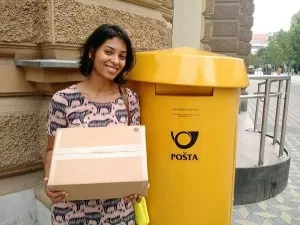
With their careers firmly on the upswing in one of the most aspirational cities in the world and having just moved into a new apartment, this was admittedly the strangest time to chuck it all and travel. But as Anuja says, “If not now, when?”
She continues, “Gaurabh and I love to travel but a limited number of holidays and a 9-5 schedule meant our traveling was also limited. I have to admit, taking a year off and leading a lifestyle on-the-go was not in my life trajectory.” It was Gaurabh who found about the Remote Year program and convinced her that they both should apply. They did, but then forgot about it.
Months later, when they were shopping for new furniture for their new apartment, a phone call informed them that they were one of the desired 25. They held off on the new furniture, put their possessions in storage and jumpstarted their journey from Prague in June 2015.
Remote Year requires applicants to pay a onetime sum of $27,000, which takes care of their airfare and
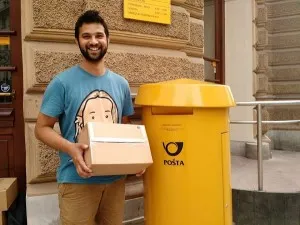
accommodation costs for one year of wandering across the world. But Remotes are required to have jobs during this period where they can work…well, remotely. Anuja says, “We get most of our money through freelance work. We don’t make our New York salaries but we work enough to fund this trip without cutting into our savings.”
Building a business while travelling
For many, this would be the worst, most impractical time to start up a new company – right in the middle of life’s grand adventure and amidst shaky finances. But the idea behind Pikka Box makes it essential to launch while they travel, Anuja emphasises. She says, “As with everything, it started off with a very simple thought. Gaurabh said one day, ‘Wouldn’t it be cool to send our family a box of souvenirs/products/things we like from every city we travel to?’ We shared this idea with some of our friends and they wanted one too. That’s when we decided to take it on the road and make it a business.”
Pikkabox
Pikkabox, born in June 2015, was a passion project that became the business. Gaurabh explains, “Once our mind was made up to travel, we both decided to make sure we had freelance work that would get us through the year. The idea was to make enough to power a simple lifestyle and give us the space to pursue our passion projects. While our decisions were theoretical before we started, six months into our travel, we’ve realized that it is possible. We also do a financial review for our personal spending every two months and keep a monthly log of all our expenses for Pikkabox from each country.”
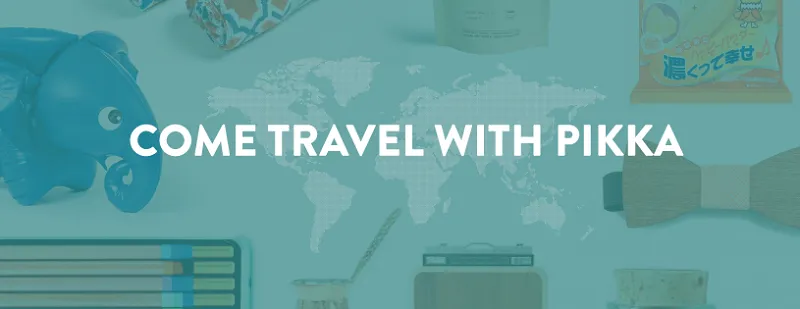
It’s a business in which they are both in for the long haul, so they are satisfied keeping its profile low for now. Anuja adds, “We thought we would test it for a year through our travels and then give it roots when we are back on the ground.”
Gaurabh says, “As designers, we have always been more interested in the ‘how and why’ behind the products we experience. It is a growing trend we’ve seen and thought it should be the one to address. While our customers order boxes filled with local products, what we really want to deliver is stories and insights about the culture, through products. We want people to be curious about new places, learn more about them and adopt new rituals through the products we send them.
There are a lot of subscription/mystery boxes out there but none that we’ve found in this category.”

There is a delightful inspiration behind their startup’s name. Anuja says, “Pikka Bird is a fictional character from the novel Mostly Harmless from the Hitchhiker's Guide to Galaxy book series. Pikka Birds from the planet of Lamuella tend to get ecstatic or surprised by everyday things like the sun rising or a perfectly ordinary leaf lying unexpectedly on a stone but are completed unaffected by an alien spaceship landing.“At Pikkabox, we have our own Pikka. Our Pikka loves finding beauty and excitement in everyday objects – a local chocolate or stamps from that country to a local craft. From everything Pikka gets excited about, we create a mystery box of things that best represent each country.”
Business model that fits in a suitcase
In order to be incorporated with their current lifestyle, the business model has to be compact and simple. Anuja says, “Every month we travel to a new place. For the month we stay in this city, we curate a box of products that are culturally relevant, that talk about a ritual of that country and give you a glimpse of this city and country through six to eight products we curate. We make only a limited number of boxes each month and put them on our website for sale. Whoever buys Pikkabox, we post it to them. We ship all boxes at the end of each month.”
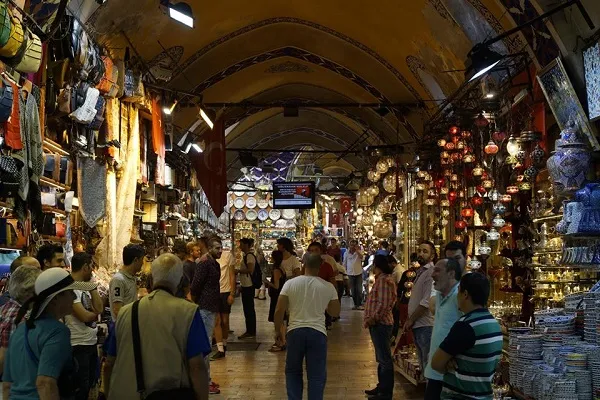
But simple doesn’t mean simplistic. The duo has thought out strategies to maximise the concept’s potential. Anuja elaborates, “Our main value is discovery and curation of local products and telling the right story about them is what we do best. In every city we travel to, we create partnerships with the makers we source products from. For now, we have two customer categories: (1) people who are curious and want to learn something new about a place that’s on their wish list and (2) well-travelled people who want to send unique gifts to their friends and family.
Subscribers
Gaurabh says, “Pikkabox works differently than a subscription box. We make only a limited number of boxes per month and put them online to sell. The rate at which the boxes get sold out depends on the popularity of the country itself. For example, Istanbul, Turkey, was far more popular than Ljubljana, Slovenia.”
Beyond customers
“Pikkabox can be curated for brands who want to connect with their customers to tell cultural stories through products. Currently, the hospitality and airline industry are our focus areas as we’ve received a few inquiries,” Anuja says.
Future
“The unique aspect of Pikkabox is that we are building the business as we travel. We are currently laying the foundation of the business, building partnerships and creating a brand.
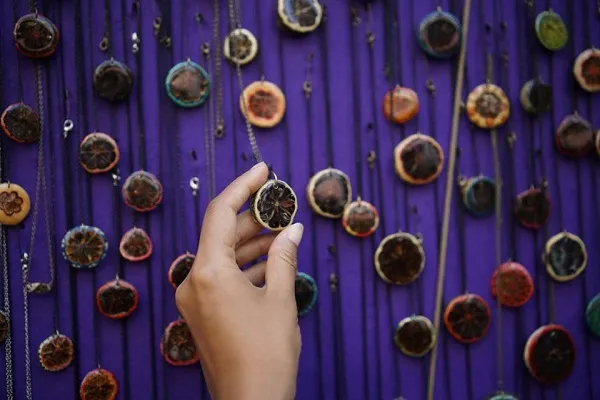
“In the future, we will also make our own select products, either ourselves or in partnership with some of the makers who we have already sourced products from. We have identified a couple of opportunities for products that we would like to make ourselves,” Anuja shares.
Life
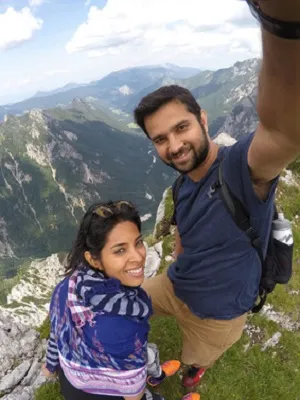
Meanwhile, the couple is six months into their year-long adventure. Currently they are in Hanoi, Vietnam and will
head to Japan in the New Year. For the last four months of their wanderings, they will be exploring different cities in South America. Anuja is most excited about hiking the Inca Trail to Machu Pichu.
One imagines it will be hard to return to the rigours of the 9-5 job once this magical year is over. How do they plan to
incorporate their wanderlust into that? Gaurabh says, “Our philosophy has never been to overplan our lives. While planning is important in certain parts of life, at the moment, we are making calculated decisions on-the-go. I love my work and wouldn’t want to let go of it completely. Even before getting on this year long journey, I wanted to live a lifestyle of working eight months a year and indulging in personal growth (traveling, learning new skills like surfing, etc.) for four months. Having gone through this year-long experience has shown us that it’s possible to do both seamlessly and will certainly try and include it in our lifestyle in the future.”







